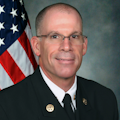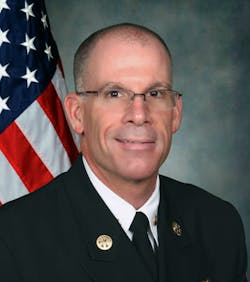It’s been said that as long as men, women and children populate this earth, the threat of fire will forever exist.
Right or wrong, love it or hate it, no city, town or jurisdiction will ever escape the threat of fire. Thankfully, the continual advancements of technology, coupled with a strong emphasis on public education and aggressive code enforcement, have greatly reduced the frequency of large loss fires within the United States, yet our history is laden with untapped lessons and preventable losses.
In 1876, fire claimed the lives of at least 278 civilians at the Brooklyn Theater in New York. In 1903, fire struck the Iroquois Theater in Chicago, killing at least 602 innocent civilians. In 1908, the Rhoads Opera House fire in Boyertown, PA, claimed 171 lives. In 1940, 209 civilians were tragically lost in the Rhythm Club fire in Natchez, MS. In 1942, fire tore through the Cocoanut Grove nightclub in Boston, killing 492. In 1978, 165 civilians were lost at the Beverly Hills Super Club in Southgate, KY. In 1990, 85 civilians were killed at the MGM Grand Hotel and Casino in Las Vegas, NV. Also in 1990, an arsonist set fire to the Happy Land Social Club, killing 87 civilians in the Bronx, NY. In 2003, the Station Night Club claimed 100 lives in West Warwick, RI. And most recently, in December 2016, the Ghost Ship warehouse fire in Oakland, CA, claimed the lives of 36 civilians.
The common denominator in each and every one of these incidents is the stark reality of the American fire problem—a lack of code enforcement.
While it is true that over the course of time we (the fire service and public) have learned from previous tragedies and changes have been implemented, it is equally true that far too many lives have been lost because the lessons previously shared had not yet been applied.
The Ghost Ship fire represents the latest large-scale fatal event in American history, and while the events surrounding this tragedy continue to be investigated, there are many lessons to be learned and we, the American fire service, have the responsibility to take that to the next level and implement change.
As firefighters and fire officers, we spend countless hours training and preparing for the next incident and far fewer hours trying to prevent its occurrence. Fire inspections, code enforcement and pre-fire planning are not the adrenalin-driven activities that bring about fanfare and praise to our profession, yet they are three of the most important responsibilities of any organized fire department—identify the problem, enforce the required changes, and proactively prepare to respond, control and mitigate the potential hazards.
I challenge each and every one of you to step back and ask yourself, why? Why do we invest so little in preventing the tragic events that bring about so much pain and suffering to our communities? Why are we so willing to take on the political battles and fight the exhaustive fights that surround our quest for budget increases, staffing and equipment upgrades, yet stand steadfastly quiet on the need for aggressive fire codes and related prevention efforts?
It is true that in the world of politics (and fire prevention has a lot to do with politics), not every battle is worth fighting, but the fight for aggressive fire codes and the right to adequately enforce and apply them is absolutely a battle worth fighting.
We’ve taken an oath to protect and serve our communities to the best of our ability given the resources provided; to turn a blind eye or to shy away from a battle in which lives and/or property can be spared is not who we are.
Make no mistake about it, right or wrong, history has a tendency of repeating itself and fire does not discriminate based on political boundaries or personal preferences. Far too many lives have been lost and many more will be threatened in the future if we choose to ignore the obvious. We bear the responsibility to those we’ve sworn to protect to apply the same exhaustive effort to preventing the next tragedy as we do to fighting the fires that needlessly burn in communities throughout the country.
For those who choose not to fight this fight, I ask, if not now, when?
About the Author

Timothy E. Sendelbach
Editor-in-Chief
Timothy E. Sendelbach is a 30-year student and educator of the fire and emergency services, and former editor-in-chief for Firehouse. He has served as an assistant fire chief with the North Las Vegas, NV, Fire Department, as the chief of training for Savannah (GA) Fire & Emergency Services and as assistant fire chief for Missouri City, TX, Fire & Rescue Services. He is a credentialed Chief Fire Officer and Chief Training Officer and has earned a master’s degree in leadership from Bellevue University, bachelor’s degrees in fire administration and arson and an associate’s degree in emergency medical care from Eastern Kentucky University.
